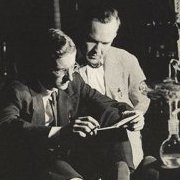
Posts posted by hypervalent_iodine
-
-
1 hour ago, Jenna P. said:
oh, John...you are in for a big surprise one day lol! it's all good... one can only see from their current level of awareness. I only posted so others researching the blue light can get another answer outside of the doctor one.
!Moderator Note
This being a science forum means you should probably keep the outside-of-the-doctor explanations elsewhere.
-
-
-
It doesn’t give a particularly clear path to understanding the basis of the OP’s question, but it does hint at it if read correctly. As a further clue for the OP, it is important to consider the position of the carbon undergoing substitution relative to the aromatic ring, and how that ring might be able to participate.
-
-
-
-
-
-
-
-
-
-
-
-
-
!
Moderator Note
I have just hidden a post in this thread, as it attempted to pull drama from other threads into this one. Please note: if you aren't going to make an intellectual or at least a substantive contribution to a thread, or your motives are purely to reignite arguments and hostility from other threads (which were closed for that very reason), I will be removing your posts. It would be greatly appreciated if people could leave the negativity at the door, and work on making positive contributions to SFN instead.
-
-
!
Moderator Note
Please stop the bickering around down votes. Raider5678, you have no way of knowing who gave you those points without their admission or the advice of staff, so please do not go around accusing people of things when you do not have the evidence to support your claims. Trust that if it is truly undeserved that someone will likely reverse it, as they have in this particular instance, and move on.
-
-
-
9 minutes ago, Strange said:
I have always assumed that (up or down) votes on old posts are from new members who have been catching up on old threads.
This is basically the case here. Itoero, I will gladly go and fix it for you, but it will have to be tomorrow. One of the things I am coming to hate in this new software is the inability to click through directly to the post a rep point was given to. I just don’t have the patience to scroll through a 31 page thread on my phone.
Somewhat related, do people prefer seeing the reputation of each post as a single cumulative number (as it is now), or the full break down of rep points a post was given (as it was about a week or two ago)?
-
-

Challenging Science - split from The Selfish Gene Theory
in Other Sciences
Moderator Note
I have just finished splitting 59 posts from this thread (to here). A few notes:
1. Reg Prescott, it is abundantly clear that you have several bees in your bonnets regarding certain scientific hypotheses / theories / whatevers. This is fine, and you are welcome to discuss them in a constructive and genuine manner in the appropriate place. This thread is not such a place, however. Do not hijack other threads with your ranting. If you wish to discuss something, make a thread and keep it there. If that thread gets closed, you've had your chance and the conversation is over.
2. To the other members who have been here longer should be more than able to identify when conversations start veering off track. You do not have a licence to continue to go off-topic until 59 off-topic posts later, someone is able to step in. There aren't very many staff around at the moment and some us (me) have a PhD thesis that needs writing. It would be very much appreciated if you could not add to the workload.
3. I did my best with the posts that got removed. If I missed something or you think something shouldn't have been taken out, PM me.
4. Cut out the hostility. Some of the attitudes in the posts I removed were not acceptable.